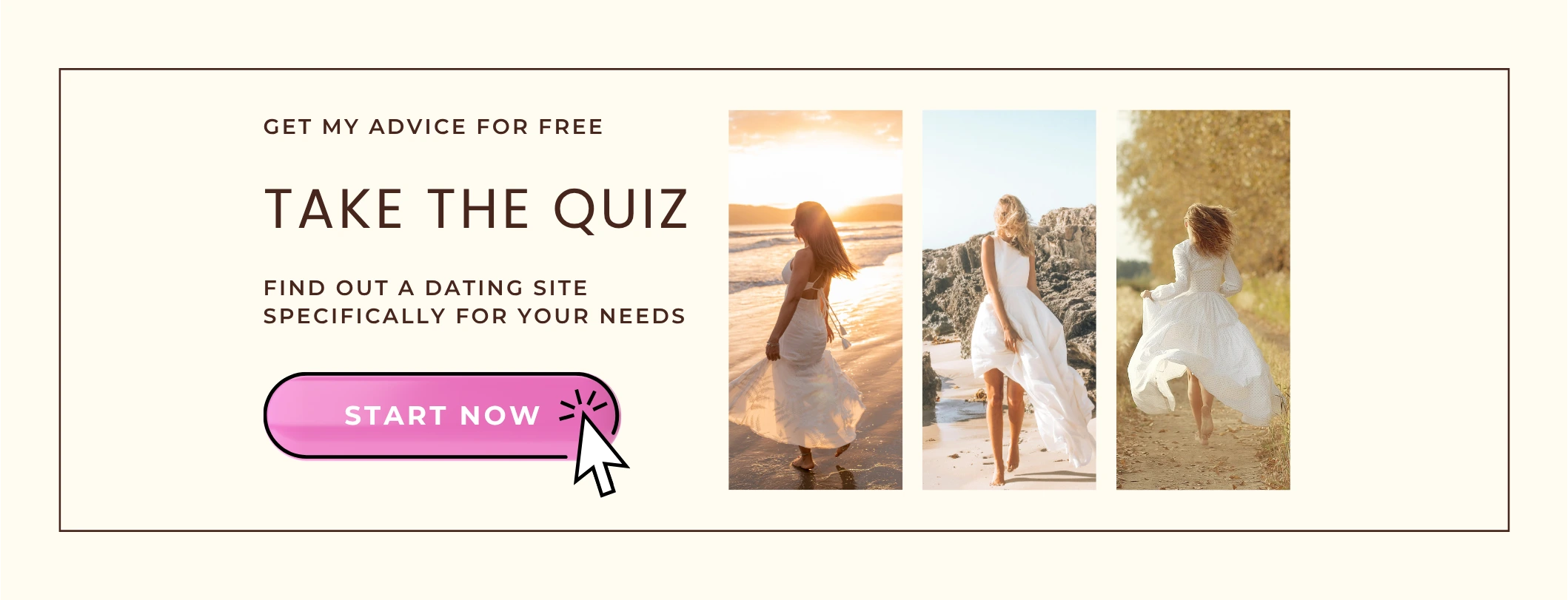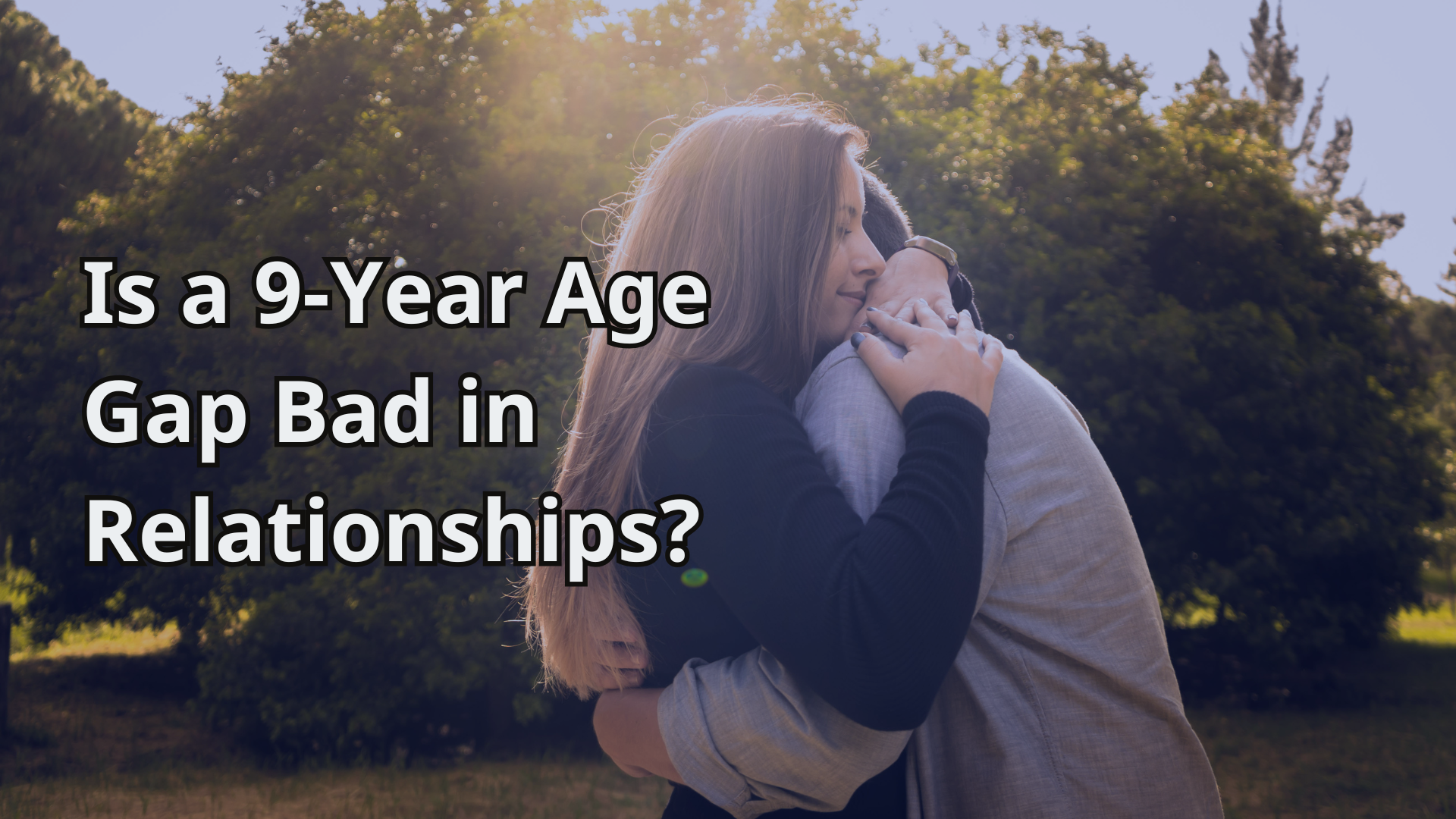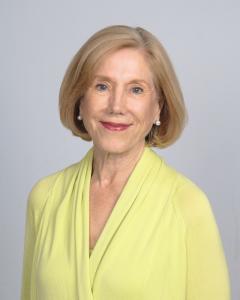Hi, I’m Dr. Peggy Bolcoa, a licensed marriage and family therapist with a PhD and more than 20 years in the field. I run my own practice in Costa Mesa, California, where I help couples and families sort out their issues every day. Over the years, I’ve worked with hundreds of pairs facing all sorts of hurdles, from trust breaks to life changes. One question that pops up a lot is about age differences, like “is a 9 year age gap bad?” or “is 9 years a big age gap in a relationship?” People worry if a 9 year age gap is too much and if it dooms things from the start.
Let me tell you straight: no, a 9 year age gap isn’t bad on its own. It can work just fine, or it can cause problems, based on the people involved. In my time as a therapist, I’ve seen couples with bigger gaps than 9 years build strong bonds that last. But I’ve also seen smaller gaps lead to splits because of other factors. Age is just one piece of the puzzle. Compatibility, talk skills, and shared goals matter more.
In this article, I’ll share what I’ve learned from my clients and from studies. We’ll look at pros and cons of a 9 year age gap relationship, some numbers on success rates, and tips to make it work. I’ll throw in stories from my practice – no names, of course – and even some quotes from sessions. By the end, you’ll have a clear picture if a 9 year age gap is too much for you.

What Makes a 9-Year Age Gap Stand Out?
First off, let’s define what we mean by a 9 year age gap. It means one partner is 9 years older than the other. For example, a 30-year-old with a 39-year-old, or a 25-year-old with a 34-year-old. At younger ages, like 20 and 29, it might feel bigger because life stages differ a lot. But at 40 and 49, it often feels smaller.
From what I see in therapy, the gap matters less as people get older. A study from the University of Colorado found that pairs who marry with an age difference start off happier, but satisfaction can drop over time if other issues creep in. Another report shows that couples with 1 to 3 years apart have the highest satisfaction, but those with 4 to 6 years aren’t far behind. For 9 years, it’s in a middle zone – not tiny, not huge.
In my experience, the real issue isn’t the number. It’s how the gap affects daily life. Does the older one want to settle down while the younger one parties? Or does the younger bring fresh energy that keeps things fun? I’ve had clients where the 9 year gap helped because the older partner offered wisdom from past mistakes.
One couple I worked with had a 9 year difference. She was 28, he was 37. They met through SofiaDate and hit it off right away. But early on, she felt he pushed for kids too soon. We talked it out in sessions, and they found a middle ground. Now, five years later, they’re married with a baby.
Pros of a 9-Year Age Gap in Relationships
A 9 year age gap can bring good things to the table. Here are five key benefits I see often:
- More Stability from the Older Partner: The one with more years often has a steady job, home, or life setup. This can make the relationship feel secure. In one case, a 32-year-old woman told me her 41-year-old boyfriend helped her plan finances better. “He knows what mistakes to avoid,” she said.
- Different Views Lead to Growth: The age difference means varied life stories. The younger might introduce new tech or trends, while the older shares lessons from the past. A study says pairs with older men and younger women report high satisfaction in romance. I’ve seen this help couples learn from each other.
- Emotional Balance: Older folks tend to handle feelings better. They might stay calm during fights, which rubs off on the younger one. “My husband is 9 years older, and his patience saved us many times,” a client shared in therapy.
- Fun and Energy Mix: The younger partner often brings excitement, like trying new hobbies. The older one adds depth with stories or skills. In family terms, like one article on siblings with 9-11 year gaps, the older ones guide the younger, creating strong ties. Same in romance – it builds support.
- Less Pressure on Timeline: With a gap, expectations differ, but that can mean less rush. Many meet via LanaDate where age filters help find matches who don’t mind the difference.
From a forum discussion, users with 9 year gaps said it worked because of shared interests, not age. One person married 30 years with a 20 year gap! That shows potential.
In my 20+ years, I’ve helped dozens of couples with similar gaps. One quote from me in sessions: “Please be encouraged when I say that I’ve seen seemingly impossible situations become relationships that are loving, safe, and intimate.” Age isn’t the barrier; lack of effort is.
Cons of a 9-Year Age Gap: What Can Go Wrong?
No setup is perfect, and a 9 year age gap has downsides. Here are four common ones:
- Different Life Stages: At 25, you might want travel; at 34, maybe kids and a house. This mismatch causes tension. A study notes faster satisfaction drop in large gap marriages after 6-10 years.
- Power Shifts: The older one might have more money or experience, which leads to uneven decisions. In therapy, I see younger partners feel overshadowed. “He treats me like a kid sometimes,” one 26-year-old said about her 35-year-old partner.
- Health and Future Worries: As time passes, the older might face health issues first. Stats show older spouses can harm survival rates for both. Couples discuss retirement gaps or caregiving.
- Social Judgment: Friends or family might question it. In a personal story, a woman with a 9 year younger husband faced “cougar” labels but shrugged them off. Still, it adds stress.
From online talks, some call 9 years “creepy” if one is under 25. But others say it fades with time.
In my practice, these cons come up, but we tackle them with EFT – Emotionally Focused Therapy. I focus on attachment styles to build secure bonds.
Statistics on 9-Year Age Gap Relationships: What the Numbers Say
Let’s look at data. Is a 9 year age gap too much? Studies give mixed signals.
- Couples with 10+ year gaps: About 50% of Americans 18-34 have tried one, seeing benefits like success from dating older.
- Divorce rates: For 12+ years, up to 90% end in split, higher with kids. For 9 years, it’s less, but still above average. One source says greater gaps mean higher odds of divorce.
- Satisfaction: Pairs with 0-3 years apart are happiest, but large gaps start strong then fade. Yet, 75% of younger women with older men say they’re content.
- Common gaps: 1-3 years is most frequent, but 4-9 years isn’t rare.
In Australia, marital satisfaction evolves differently with age gaps. From my view, stats show trends, not fates. I’ve seen 9 year gaps beat the odds with work.
Stories from My Therapy Room: Real 9-Year Age Gap Experiences
Over 20 years, I’ve heard many tales. Here’s a few anonymized ones to show how a 9 year age gap plays out in real life.
Mark (42) and Lisa (33) came in fighting about kids. He wanted them now; she needed time for her career. The 9 year gap amplified it because he felt his biological clock tick louder. Through EFT, they learned to listen better and address fears. “I realized my rush came from fear of aging,” Mark said. They compromised on a timeline, and now they have twins. They also worked on balancing power, as Lisa felt his experience sometimes overshadowed her ideas.
Sarah (29) and Tom (38) met on SakuraDate. She loved his maturity, but friends judged the gap. In sessions, we built her confidence and helped them talk about external pressures. “Age doesn’t define us,” she told me after a breakthrough. They’re engaged now, and the gap brings them closer through shared hobbies like hiking, which Tom introduced from his past travels.
A reverse gap – Jane (45) with Mike (36). He brought fun and energy; she offered wisdom and stability. But health scares hit Jane early, which makes Mike worry about the future. We planned for potential caregiving and discussed retirement differences. “Her experience helps us prepare,” Mike shared. They’re stronger now, with a solid plan that includes joint savings.
Another pair, Emily (31) and David (40), struggled with energy levels. He preferred quiet nights; she wanted adventures. The 9 year difference highlighted this, but therapy helped them find middle ground activities. “We mix my calm with her spark,” David said. They’ve been together seven years.
These stories show that with therapy, gaps can close emotionally. As I often say, “It’s an honor to share my insights and reflections, aiming to enlighten and empower every reader.”
How to Make a 9-Year Age Gap Relationship Work
Want to beat the challenges in a 9 year age gap relationship? Here are nine tips from my expertise, based on what has helped my clients succeed.
- Talk Openly About Goals: Discuss kids, careers, and retirement early. Don’t assume alignment. One couple set monthly check-ins to stay on track.
- Balance Power: Make decisions together. Avoid letting the older one’s experience dominate. Use tools like pros/cons lists to keep it fair.
- Embrace Differences: See the gap as a strength. Learn from each other – the younger can teach tech, the older history. Celebrate these contrasts.
- Handle Judgment: Ignore outsiders. Focus on your bond. Build a support network of open-minded friends.
- Plan for the Future: Talk health, money, and aging head-on. Create wills or health proxies early to ease worries.
- Seek Help if Needed: Therapy like EFT helps a lot. I’ve turned tough cases around by fixing attachment issues.
- Keep Fun Alive: Date nights and new activities maintain energy. Try things the younger suggests to keep it fresh.
- Build Shared Routines: Find common ground in daily habits, like cooking together, to bridge life stage gaps.
- Foster Independence: Encourage each to pursue personal interests. This prevents resentment from differing paces.
Many couples find partners via LatiDate, where you can set age preferences. It helps match with folks who accept the difference. From forums, successful gaps rely on maturity levels matching, not calendar years. Put in the work, and a 9 year age gap can thrive.
When Is a 9-Year Age Gap Too Much?
A 9 year age gap becomes too much if it leads to constant fights or unmet needs that can’t be fixed. Key signs include one partner feeling controlled due to experience differences, or energy levels clashing so much that shared activities suffer. For instance, if the older one tires easily and the younger craves adventure, resentment builds without compromise.
Another red flag: timelines don’t align, like one ready for kids while the other focuses on career growth. Health worries can escalate too, especially if the gap means one faces aging issues sooner, causing fear or burden. Social judgment turns internal if it erodes confidence.
But often, it’s not just the gap – poor communication amplifies it. In my practice, I see couples mistake age for the root problem when it’s actually fears or insecurities. One client with a 9 year gap said, “We thought age was the issue, but it was our unaddressed trust problems.” After therapy, they fixed it.
Studies back this: compatibility outweighs age in long-term success. If these issues persist despite efforts, it might be too much. Evaluate honestly – can you adapt? If not, therapy helps decide next steps.
Celebrity Couples with Around 9-Year Age Gaps: Lessons We Can Learn
Celebrities often face scrutiny for age differences, but many with gaps around 9 years show us valuable lessons. Take Ritesh Deshmukh and Genelia D’Souza, with a 9-year gap – he’s older. They’ve been married since 2012, with two kids, and credit mutual respect and humor for their bond. Genelia once said they focus on shared values over age.
Even couples with slightly larger gaps, like Nick Jonas (31) and Priyanka Chopra (42) at 11 years, offer insights. They met online and handle criticism by prioritizing partnership. Priyanka notes age doesn’t matter when goals align.
From my perspective as a therapist, these pairs succeed by addressing power dynamics and planning ahead, much like my clients. They prove a 9-year gap isn’t bad if you nurture the relationship. Stats show 40% of Americans have tried age-gap dating, often with positive outcomes. Lessons: Communicate openly, support independence, and laugh off judgments. In therapy, I see similar strategies work for non-celebs too.
Gender Dynamics in 9-Year Age Gap Relationships
Gender plays a role in how a 9-year age gap feels and functions. Traditionally, older men with younger women is more common – studies show men are often 2-3 years older than spouses. As men age, they prefer even younger partners, while women do too, but less dramatically. In my practice, I see this: men report higher satisfaction with younger wives, and surprisingly, women with younger husbands.
For older man-younger woman pairs, benefits include his stability and her vitality. But cons like power imbalance arise if he dominates decisions. One client, a 35-year-old woman with a 44-year-old man, felt undervalued until we balanced roles.
Reverse gaps – older woman, younger man – face more stigma, like “cougar” labels. Yet, data shows these can thrive; women gain energy, men wisdom. A 2022 poll notes men are more likely to date younger overall. In sessions, a 42-year-old woman with a 33-year-old partner worried about aging, but they focused on equality.
Across genders, large gaps link to lower longevity for women in some studies. Empowerment issues emerge if gaps hinder women’s choices. But commitment levels are higher in age-gap pairs.
In therapy, I use EFT to address these dynamics, ensuring both feel heard. Whether man or woman is older, success depends on respect. I’ve helped couples where the gap enriches, like a younger man bringing fun to an older woman’s life. Key: Challenge stereotypes and build on strengths. A 9-year gap isn’t too much if genders complement, not compete.
The Impact of a 9-Year Parental Age Gap on Children
In my family therapy, I’ve seen positives: older parents offer stability and wisdom. A couple with a 9-year gap parented with the dad’s experience guiding discipline, which helped their teen. But older parents report more stress and poorer relationship quality, which can trickle to kids.
Educational outcomes vary – children of older parents from low-educated backgrounds may struggle. Yet, some data show better survival rates for offspring of older parents. If the gap means differing energy, the younger parent might handle playtime, while older focuses on advice.
Personal stories highlight challenges: kids may worry about losing the older parent sooner. In sessions, a family with a 9-year gap dealt with the child’s anxiety over dad’s health. We built open talks to ease it.
Siblings aren’t directly affected by parental gap, but if parents have kids later, larger sibling gaps mean more parental attention, boosting scores. Overall, a 9-year gap isn’t bad for kids if parents model healthy bonds. Focus on co-parenting unity. In my 20+ years, families thrive when gaps bring diverse perspectives, not division.
Dr. Peggy Bolcoa’s Conclusions as a Psychotherapist
As a psychotherapist with over 20 years helping couples, I conclude that a 9 year age gap isn’t bad or too much by itself. It can add richness if you handle differences well. Success comes from mutual respect, clear talks, and shared values. I’ve witnessed couples with 9 year gaps create deep love. But if issues arise, don’t wait – get help.
Remember my words: “I’ve seen seemingly impossible situations become relationships that are loving, safe, and intimate.” Age is a number; your effort makes the difference.
If you’re in a 9 year age gap relationship and need advice, reach out to a therapist like me. Check sources like Psychology Today for more. Or sign up on NaomiDate to meet folks who share your view on age.
Thanks for reading. Stay connected!

